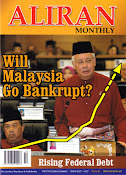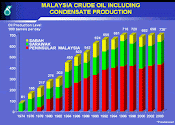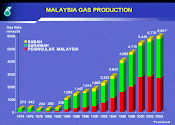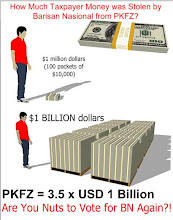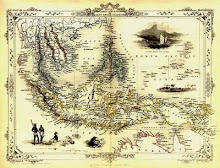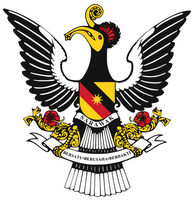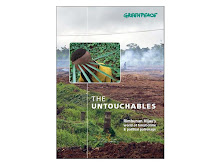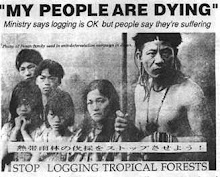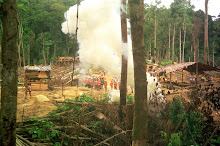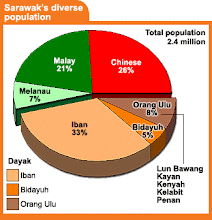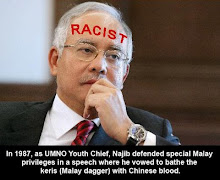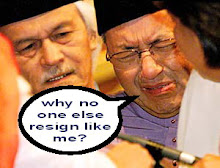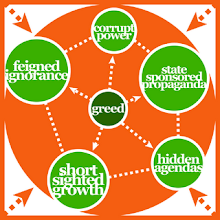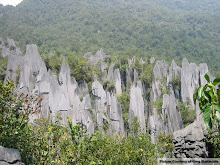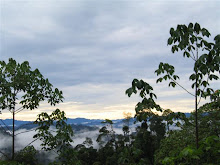 Money Logging
Money LoggingBook Review : Money Logging By Lukas Straumann, Bergli
A sad tale of the Asian timber mafia and the man who did more than anything to create it, Abdul Taib Mahmud.
On Oct. 3, 2011, a depressed, paranoid former chief operating officer
for a San Francisco-based property company called Sakti International
named Ross Boyert slipped a plastic bag over his head, taped it tight
and suffocated himself to death in a Los Angeles hotel room. He was 61.
But Boyert, however delusionary he was when he died, left behind him an
explosive legacy – the details of virtually all of the properties owned
by Abdul Taib Mahmud, the longest serving public official in Malaysia.
It is a breathtaking collection according to the documents that Boyert –
who was fired by the Taib interests -- gave to a crusading journalist
named Clare Rewcastle Brown. They show that Taib, through nominees,
family members and other subterfuges, is worth in excess of US$21
billion.
Taib is not mentioned on the Forbes list of Malaysia’s
richest, but if he were, he would be worth almost twice as much as the
man listed as richest -- Robert Kuok, whose fortune is in property,
sugar, palm oil and shipping. He would also be about halfway up the list
of the world’s 50 richest billionaires although his name is not
mentioned there either.
That is because, according to this book by Lukas
Straumann, Taib amassed his entire fortune illegally, as undoubtedly a
handful of others have around the world that remains hidden.
Nonetheless, according to Boyert’s documents and the research by
Rewcastle Brown and Straumann, he is an engine of corruption the likes
of which the world has never seen.
Taib built his real estate empire
in Canada, the United States, Australia and the East Malaysia state of
Sarawak on timber. In the process, in his 33 years as chief minister,
he staged some of the most depressing environmental destruction on the
planet. An estimated 98 percent of the old-growth timber of Sarawak, a
state three times the size of Switzerland, is gone, sold via timber
permits to logging companies, many of them connected to him, that
shipped the logs to Japan, China and across much of the rest of the
world.
Using the documents furnished by Rewcastle Brown, and with
considerable additional reporting, the story of Taib’s looting of
Sarawak is told by Straumann, the director of the Basel-headquartered
Bruno Manser Fund, an NGO named for a Swiss naturalist who fought to
save the indigenous Penan tribe from the depredations of the loggers’
bulldozers, and who disappeared into the forest in 2000 and has never
been found.
It is an explosive book. Taib has threatened to sue Amazon
if it distributes it. So far, Amazon has backed away from delivering it.
The book, Money Logging: On the Trail of Asia’s Timber Mafia, published
by Bergli Books, also of Basel, tells the story of Taib’s rise to
power, starting in 1965 as minister of agriculture and forestry. By the
end of that decade, he would be Sarawak’s richest politician. Today he
holds interests in property companies that own prestigious buildings in
Seattle, San Francisco, Ottawa, London, Adelaide and in Malaysia itself.
The major companies he controls through family members or by proxies,
according to Boyert’s documentation, include Sakti International,
Wallyson’s Inc., Sakto Group, Citygate International, Ridgeford
Properties, Sitehost City and literally scores of smaller ones. He is
believed to control more than 100 companies.
One of the most
important things about this story is that Taib was first anointed by
Tunku Abdul Rahman, the father of Malaysia and the country’s first prime
minister. Abdul Rahman was followed in office by five other prime
ministers who sat in Kuala Lumpur and later the Putarjaya government
complex and did nothing about him.
It was hardly a secret that he was
both looting the country and stealing, on a breathtaking scale, the
resources that belonged to the Dayak, Murut, Penan and other local
tribes that make up the peoples of Sarawak.
Nothing was done about
him because he developed a political machine that could deliver votes to
the Barisan Nasional, the ruling national coalition in Peninsular
Malaysia. Taib is a Muslim. Most of the Sarawak tribes are either
Christian or animist. And, to the government across the South China Sea,
it would have been unthinkable to have a non-Muslim government leader
in charge.
Later, during the current administration of Prime Minister
Najib Tun Razak, it became clear that the Barisan’s very survival
depended on Taib and his fellow Kleptocrat, Musa Aman, who continues
stealing the people of the neighboring state of Sabah blind, although on
a smaller scale.
What’s worse is that Taib’s activities in Sarawak,
according to the book, spawned a series of giant timber companies
including Concord Pacific, Samling, Shin Yang, WTK and Ta Ann Holdings –
all of which have received backing from the international banking
community including HSBC and others – and have expanded far outside of
Malaysia to Cambodia, Australia, Gabon, Equatorial Guinea,
Congo-Brazzaville, Papua New Guinea and just about every other country
with less than reputable governments and tropical timber to loot.
“Virtually all of this timber (from Papua New Guinea) was exported to
China in the form of logs and other Asian destinations and the
trickle-down of wealth in the country itself remained minimal,”
Straumann writes. That is true of virtually every country in which the
Malaysia-based lumber companies operated.
There is one more sad
corollary to this story. As a Dec. 23, 2014 story in the New York Times
about Costa Rica’s rainforests demonstrates, tropical forests will
regenerate, and, given the space of time, return to their former state.
The forests of Sarawak, if not all of Borneo, once one of the world’s
greatest green lungs, will not. Sarawak’s forests are being replaced
with oil palm plantations.
Taib has stepped aside as chief minister
and is now the state’s governor. He ostensibly is under investigation by
the Malaysian Anti-Corruption Commission after the Swiss government
forwarded allegations to the Malaysians of money-laundering into Swiss
banks.
“It is up to his successors (as chief minister) to correct
the state’s course of action and the government’s condescending attitude
towards its indigenous peoples,” Straumann writes. “Now, the Malaysian
judiciary and anti-corruption authorities need to live up to their
responsibility. While it is a good thing that Sarawak’s last ‘White
Rajah’ has finally stepped down, he does not belong in the governor’s
residence. He belongs in jail.”
P/S: That last sentence is sadly
unrealistic. Malaysia’s anti-corruption commission and its judiciary have
no intention of doing anything about Abdul Taib Mahmud. He remains far
too valuable to the ruling coalition in Putarjaya to keep the state in
loyal hands.
He has announced plans to build a long series of (52) dams on
rivers to supply power that, given Borneo’s state of development, will
never be needed. But skimming from the contracts will continue to supply
a fortune to Taib and his family (not forgetting also the timber that will be cleared).
Additions in red by Sarawak Headhunter


